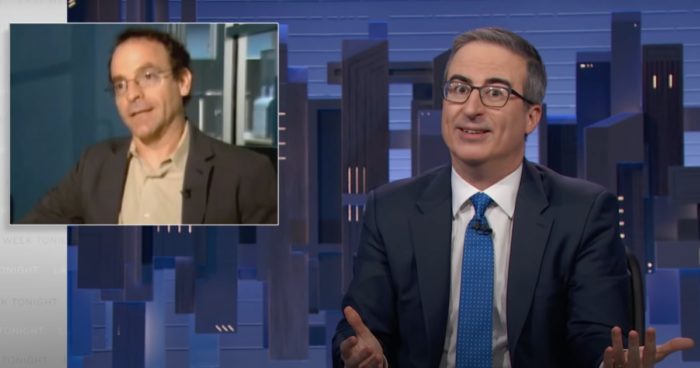Relix editor Dean Budnick on Last Week Tonight with John Oliver
***
Yesterday, Last Week Tonight with John Oliver did a deep dive on the price of ticket sales for music and entertainment events. During the 20-minute segment, Oliver addressed the core issue with ticket prices, condemned those who are profiting from inflated prices and explored ways to amend the situation.
The segment started with Oliver calling out Ticketmaster’s hypocritical claims that they “put fans first” while still charging them fees as high as 78% on each sale. He then explored specific contracts set between venues, promoters and sometimes the artists themselves. He sent this point home by noting that in the ’90s when Pearl Jam tried to tour without contracts they struggled to book any legitimate venues.
Oliver also explored a problem outside of pricing: the fact that tickets often disappear in such a short amount of time, so quickly that fans don’t have a chance to purchase them. In fact, some popular arena shows have made 25% of tickets initially available to the public with the remaining tickets are held back and sold in other ways, often by professional ticket brokers. Oliver mentioned a 2012 incident in Nashville, where reporters found a ticketing manifest confirming that an entire row of tickets for a Justin Bieber show had been directly posted for sale on a secondary site by Bieber’s own tour. “I think there is no question when one looks at the document that Bieber is scalping his own tickets,” said Relix editor Dean Budnick, co-author of Ticket Masters: The Rise of the Concert Industry and How the Public Got Scalped (a book he wrote with Relix Editor Emeritus Josh Baron), during a portion of the original WTVF report which Oliver aired last night.
Towards the end of the segment, Oliver addressed the possible angle of refutation that things are worth what people will pay for them. He furthered the validity of this point by displaying a potato that resembles Micky Mouse he bought online for $50 and likened it to an Adele ticket on SeatGeek for $1,690, plus $538 in fees.
Still, he offered some solutions to the problem, like injecting “…transparency into this process by passing laws that require sites to disclose their fees upfront,” or having individual artists make their tickets non-transferable. “If regulators don’t act, and artists don’t have the clout or the inclination to require companies to put those guardrails in place,” Oliver said. “I’m afraid you as a fan are going to remain vulnerable to the worst parts of this system.”
Watch the full segment below:



5 Comments comments associated with this post
New York State Senate and Assembly Pass Legislation to Ban Hidden Ticket Fees | leveluphiphop.online
June 8, 2022 at 12:38 am[…] a segment on Last Week Tonight with John Oliver, Oliver mentioned a 2012 incident in Nashville, where reporters found a ticketing manifest […]
New York State Senate and Assembly Pass Legislation to Ban Hidden Ticket Fees - Musicians Territory
June 7, 2022 at 11:29 pm[…] a segment on Last Week Tonight with John Oliver, Oliver mentioned a 2012 incident in Nashville, where reporters found a ticketing manifest […]
New York State Senate and Assembly Pass Legislation to Ban Hidden Ticket Fees - Novaluxica News
June 7, 2022 at 4:11 pm[…] a segment on Last Week Tonight with John Oliver, Oliver mentioned a 2012 incident in Nashville, where reporters found a ticketing manifest […]
New York State Senate and Assembly Pass Legislation to Ban Hidden Ticket Fees
June 7, 2022 at 12:10 pm[…] a segment on Last Week Tonight with John Oliver, Oliver mentioned a 2012 incident in Nashville, where reporters found a ticketing manifest […]
John Oliver Tackles Ticket Sales on 'Last Week Tonight' - jambands.com - ticketCMS - Ticketing Websites for TicketNetwork, TicketEvolution, VividSeats, Stubhub, TicketCity and AutoProcessor
March 25, 2022 at 5:35 am[…] John Oliver Tackles Ticket Sales on ‘Last Week Tonight’ jambands.com […]